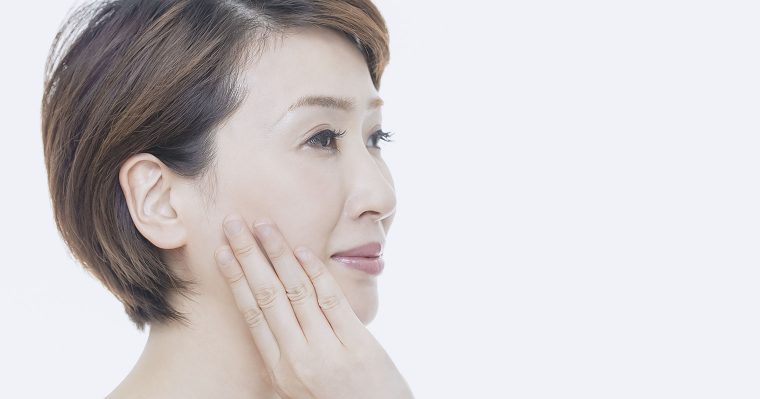Age 40+ Singapore Women Lifestyle should be what you need to care about when you step into your 40s. you would have gone through just about every pubescent skin problem such as acne, and might have already begun facing another wave of skin concerns. Dry and rough skin, fine lines and wrinkles, and other signs of aging. While our minds and bodies mature, changes are also evident on your skin. But unlike puberty, signs of aging or the effects of menopause can be here to stay if you do not take precautionary measures to iron them out.
Other than aging, other factors can come into play that may cause poor skin health and health in general. Between having to manage a career, taking care of a family and making time for yourself, all this can put all but one thing on you: stress. Not only that, when your career involves being deskbound and facing a computer, your skin is facing a lot more than stress. Add environmental factors like harsh air-conditioning to the list.
It can be bad enough to maintain clear and healthy skin in a tropical weather without having to fight hormonal acne as much as we used to. In this article, let us address possible skin issues and how to go about solving them using timely, efficient, and natural methods.
Effects of environmental factors on skin
Sun damage, harsh air-conditioning and tobacco smoke are examples of environmental factors. Your skin is constantly exposed to environmental factors like these every day, especially in a city like Singapore. Inadequate protection, slower metabolism in your 40s and a decrease in sebum (oil) production in your skin leaves it prone to skin conditions like dry and cracked skin, age spots, or breakouts.
Dry skin and its treatment
When your skin starts to feel itchy, has a cracked surface and tiny white lines running all over it, you have dry skin. It is an extremely common skin condition in sunny Singapore, and it can be due to any number of reasons. As the human body is mostly made up of water, dry skin is naturally caused by a lack of it. Additionally, environmental factors such as prolonged exposure to the sun and warm temperatures can worsen the dryness. Other conditions that can weaken the structure of your skin is:
- Over-using of sanitizers and alcohol (lipid solvents): These can strip your skin of its natural oils, and overuse of these can reduce sebum production in your skin, leaving it dry.
- Overwashing using harsh soaps: Like sanitizers and alcohol, overwashing can reduce the sebum production of your skin. Harsh soaps may contain ingredients like ammonium sulfate, which can further dry your skin.
- Cold temperatures: Most offices in Singapore has air-conditioning, and prolonged exposure to it can contribute to the dryness of the skin.
For mildly dry skin, your doctor may prescribe moisturizing lotions. Other products with high moisturising properties include Vaseline, which is made of petroleum jelly that helps to protect your skin by forming a protective layer over the skin’s own natural barrier.
Natural/organic ingredients to treat dry skin
If, however, you’re looking for a natural remedy to beat dry skin, some of the most popular ingredients with high moisturising factors include natural oils.
Olive oil
As mentioned earlier in this article, olive oil has many uses other than treating stress rash. It is rich moisturising properties as a natural humectant (which means it preserves moisture). Besides that, olive oil contains antioxidants and vitamin K, promoting anti-aging.
You can apply olive oil directly to your skin on the affected area. Leave it on for 5 to 10 minutes and then wash it off or use a warm washcloth to remove it. To further deter dryness of the skin, apply olive oil after every shower. This helps keep your skin naturally moisturised!
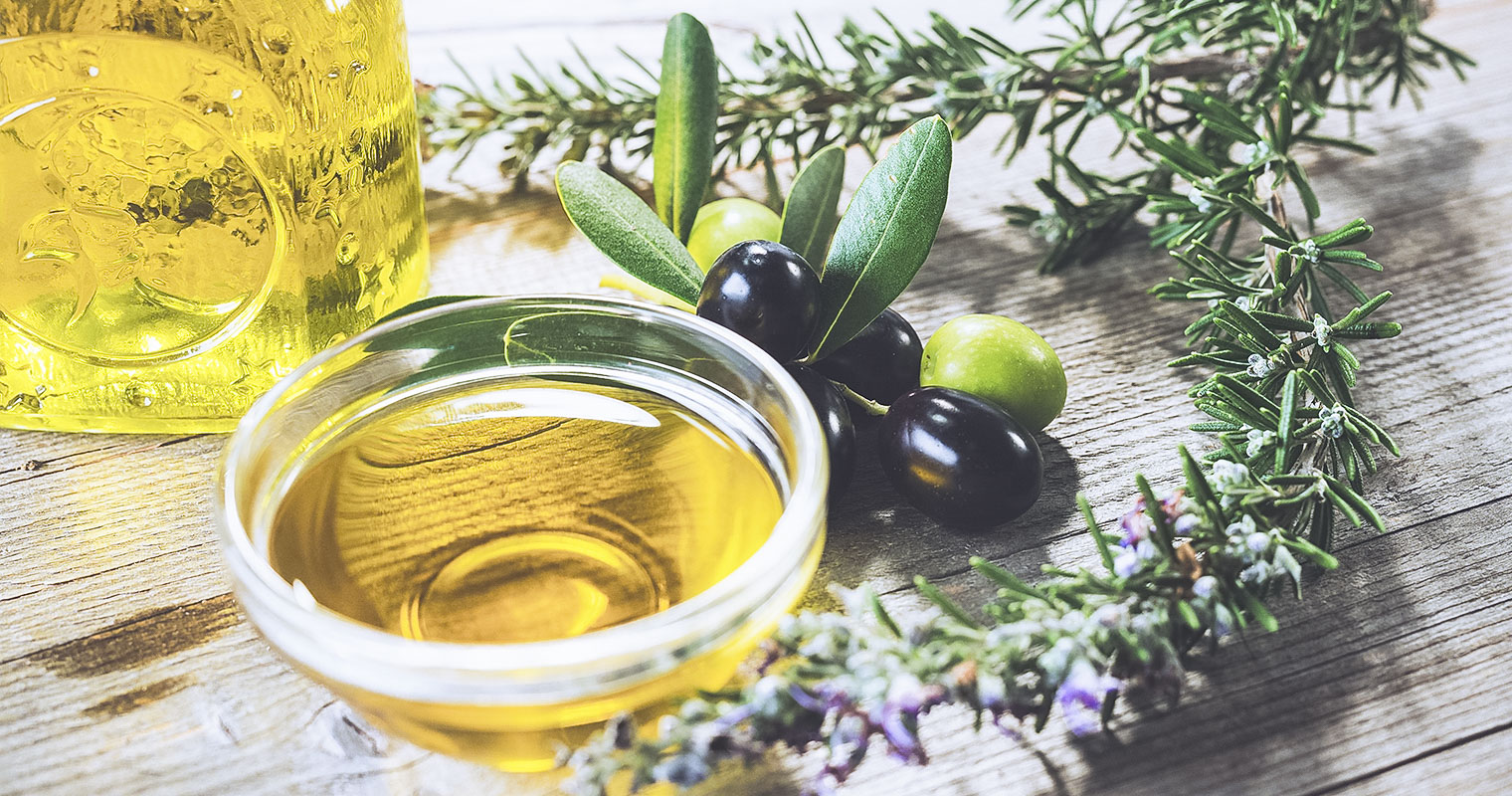
Jojoba oil
Another one of the highly moisturising natural oils, jojoba oil is also known for its humectant properties and serves as a protective barrier on your skin. Apart from that, it is also noncomedogenic, which means it does not contribute to acne, making it suitable for any type of skin. It is highly recommended for dry skin because of its anti-inflammatory properties, which helps reduce itchiness due to dry skin.
Jojoba oil can be applied to your skin in the same method as olive oil. Use this oil after each shower to increase its moisturising effects!
Honey
Earlier we talked about Manuka honey and its (albeit unproven) usefulness in treating acne. Honey, in fact, offers a whole array of benefits aside from reducing acne, and that includes providing oil control, relieving dry and irritated skin and even eczema. Its natural ability as an emollient helps to not only moisturise and soften the skin, but its effects remain even after it is washed away.
Honey can be applied directly to your skin. Keep it on for 15 to 20 minutes, and then wash it off with lukewarm water.
Using German Blue
If you’re facing skin dryness in your 40s, then this facial serum is suitable for you. It contains Simmondsia Chenensis Seed (Jojoba) oil and Olea Europaea (Olive) oil, as well as Vitis Vinifera Seed (Grape Seed) oil, Argania Spinosa Kernel (Argan) oil and other natural oils. These oils are specially selected to help nourish drying skin, alleviating skin-aging concerns and enhancing the skin’s natural oil layers, essentially promoting anti-aging.
German Blue can be massaged directly on the skin, focusing on the target areas. It is also best used with Best Water, a mineral-based toner that is deeply hydrating for the skin.
Age spots and its treatment
Age spots are one of the most common signs of aging, and they are actually easily caused by prolonged exposure to the sun. Without proper protection from the harmful ultraviolet rays of the sun, your skin may overproduce melanin, which is the pigment responsible for your natural skin tone. Over time, the melanin produced may accumulate in your hands, arms or neck, resulting in what we know as age spots or hyperpigmentation.
This article discuss more about different types of hyperpigmentation, its causes and treatment.
Certain ingredients prescribed to you by a physician may include hydroquinone, which is a skin bleaching agent that helps in lightening pigmented areas. Other ingredients that work similar to hydroquinone are retinoids like tretinoin. Tretinoin is largely used to treat acne and hyperpigmentation.
Natural/organic ingredients to treat age spots
There are a large number of ways to reduce hyperpigmentation in the market today, and these may include laser treatments, or chemical peeling treatments that may be fast and effective. The difference between these treatments and natural homecare remedies is that the natural methods always tend to have longer-lasting effects. If you’d like to explore some organic ingredients to help in reducing age spots, see the following essential oils.
Tea tree oil
Tea tree oil, much like olive oil and other oils, has several benefits when it comes to the human skin. Aside from being an excellent treatment for acne, tea tree oil also serves well as a lightening agent, and is fairly common in beauty and skincare products. It helps to maintain sebum production of the skin, and contains properties that help to diminish age spots and blemishes, like acne.
Just like treating acne, use a few drops of tea tree oil and apply it over the affected area. Let it sit overnight.
Argan oil
Age spots are essentially an overproduction of melanin pigment in your skin, coupled with thinning of the skin, which is also another skin concern for women. With thinning skin, especially around the hands and neck, veins and built-up melanin become more visible. Argan oil is especially suited at addressing the skin’s elasticity because of its rich fatty acids content, and helps to reduce fine lines and age spots.
Apply argan oil to the affected areas of the skin in the same manner as the tea tree oil. Let it sit overnight for better results.
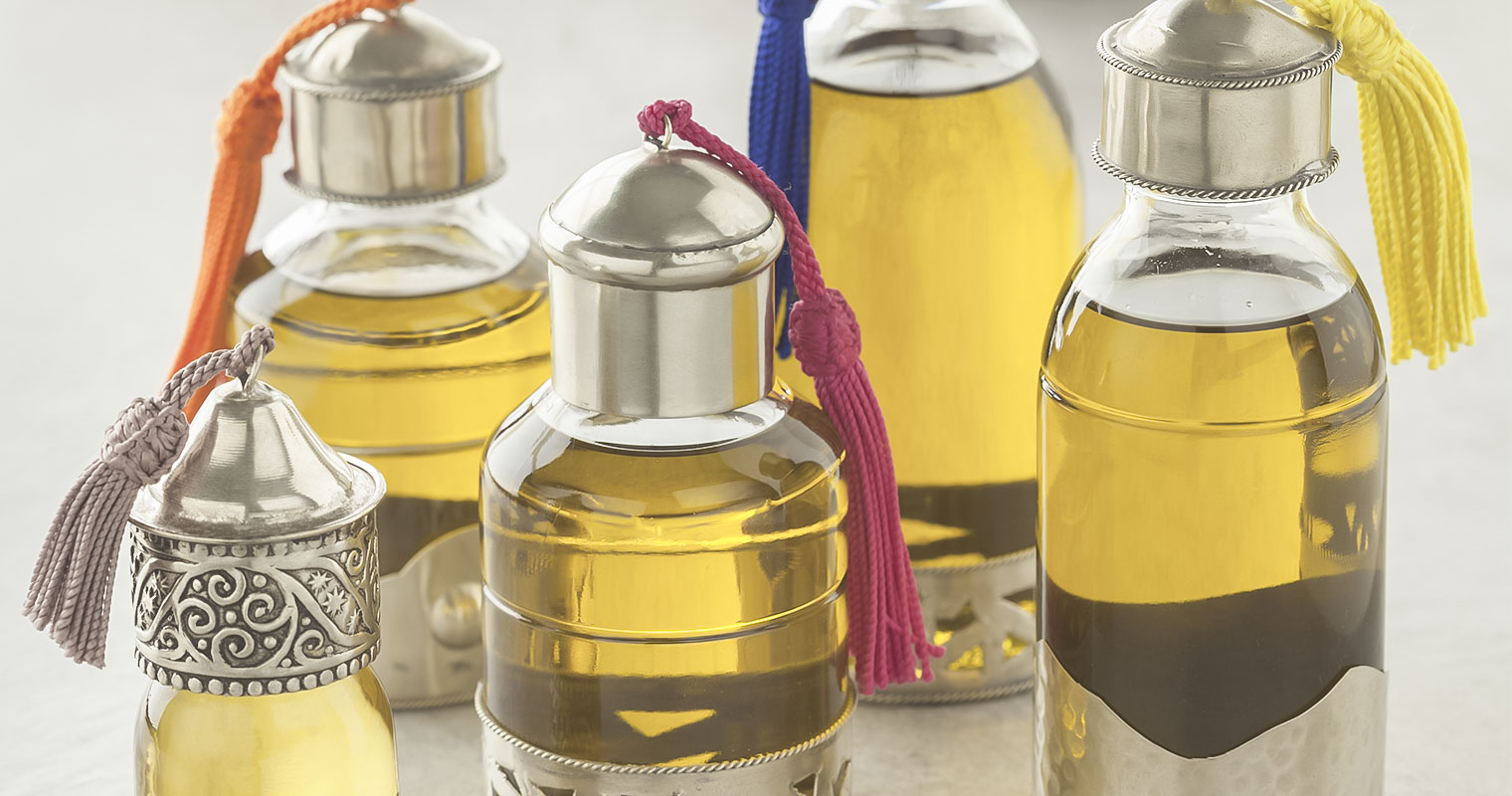
Lavender oil
Most people know of lavender oil because of its effectiveness as an aromatherapeutic oil. It promotes relaxation, leading to better sleep! Another benefit of this very useful oil is reducing age spots. Due to its anti-inflammatory properties, it helps in skin lightening and diminishes blemishes, age spots and blotchiness.
Apply lavender oil directly to the affected areas of your skin, and leave it overnight. Now, all the oils mentioned may have a certain manner of application to them. What is important to note is that not all of the oils provide the same benefits as each other. Take note of which oil is most suited for your skin concern and skin type, and stick to that oil for as long as you can.
Effects of Stress on skin
Ahh, the dreaded “S” word. Stress, as we know it, can be any form of pressing problem or issue in our lives that brings about emotional tension. It could be not paying the bills on time, settling a family dispute, or conforming to tight deadlines at work.
What we often forget is that it is this emotional state that can cause adverse effects on our physical health. All the tasks and assignments you have on hand, the deadlines circled on your to-do list, and the remaining 101 things at the back of your head are just the tip of the iceberg. Stress can come in all forms – so can the effects of stress.
Dark circles & its treatment
This is a fairly common skin problem resulting from insufficient sleep. Those of us who work the office hours sometimes may clock in longer shifts, shortening the hours of sleep we may get. Others may be used to the rotating shifts and the transition from night to day shift may make it difficult to get a good night’s sleep in.
Dark circles are formed due to pallor of the skin. With insufficient sleep, your skin becomes dull and this makes for the underlying tissues and blood vessels underneath it to become more visible than usual. With pale skin, the fluid that accumulates underneath your eye area also becomes more visible. Hence, it results in a darker skin tone around the eye area, or what we call “dark circles”.
You can get a quick-fix by buying night or day creams from drugstores, and these can be effective due to the skin-brightening ingredients that they contain! Look for eye creams that contain retinol, which is the active ingredient that helps brighten up your eye area. Other brightening ingredients like vitamin C, kojic acid and licorice extract also help in reducing the appearance of dark circles!
Home remedies to treat dark circles
While there are treatments and skincare products that can help in minimizing dark circles, you can give these inexpensive methods a go if you’re looking for a natural way to get rid of them.
Add more hours of beauty sleep
Because dark circles form due to fluid retention in the eye area, it is only advisable (and recommended) to correct the issue by making sure you’ve got your circadian cycle right. Although keeping to a 7-hour sleep schedule seem tough, there are several tricks you can try to make sure you at least get more than a 4-hour nap.
Setting a reminder at the same timing night may work for some people. Set it to an hour before your ideal bedtime as this gives you ample time to prepare for bed. Another method of preparing your body for a good night’s sleep is to separate your workspace from your sleep space. Refrain from doing work on your bed or in the bedroom, as this helps in conditioning your body to prepare for sleep better when in the bedroom.

Put a cold compress
The way a cold compress works is by putting cold pressure on the dilated blood vessels that have begun to show around your eye area. This then results in a pallor appearance of the face and a darker skin tone of your eyes. Apply ice cubes to your eye area wrapped in a cloth for 15 to 20 minutes each time, shifting from one eye to the other. You can apply this method while getting ready for bed each night.
Keep your head elevated while sleeping
The flow of blood in the body goes as with anything on this planet – gravity. It works the same way as elevating swollen or aching legs. Elevation restricts the fluid flowing to your eye area, hence reducing in lesser fluid retention and eliminating dark circles.
Use cold tea bags
Cold tea bags work in a similar way as cold compress. The bonus point with tea bags is that they contain antioxidants and caffeine, which are present in tea. These substances help in stimulating the circulation of blood, hence reducing fluid retention by shrinking the blood vessels. Boil green or black tea bags for 5 minutes, and then keep them in a refrigerator to cool for 15 to 20 minutes. Place them on your closed eyes for 20 minutes, and then wash the eye area with cool water.
Stress rashes and its treatment
You read that right – stress can lead to rashes on your skin. Rashes are itchy, red and unpleasant. For some people, the combination of work life and family, including social lives, can cause some degree of stress, and all this put together can lead to little raised bumps on your skin.

For the most part, stress rash is not chronic. If you find yourself scratching your skin for more than a month, you should consult a doctor or a dermatologist as it may be an infection or an allergy. Otherwise, you may be given a prescription for creams or antihistamines, which are drugs that treat allergies.
It is important to note that regardless of the method of treatment you decide, do not scratch that rash. It will worsen, and may develop into eczema, or catch an infection. So how do you treat a rash before you give in to the urge to scratch that itch? Let’s dive into the natural ways you can treat these dreaded rashes.
Natural/organic ingredients to treat stress rash
Apple cider vinegar
It is the most popular type of vinegar, and it is made from fermented apple juice! Studies have claimed (and proven) that it provides many health benefits, including weight loss and lower blood sugar levels. For rashes, though, this vinegar may provide a prickly relief due to its antimicrobial properties.
There are 2 ways you can use apple cider vinegar. Apply it to your rash on its own (concentrated), or use a diluted concoction several times a week. If you find your skin peeling or cracked, cease using the vinegar immediately.

Tea tree oil
Earlier we mentioned the tea tree oil and its antiseptic and antimicrobial properties. Because of this, it helps to fight bacteria that forms on your skin around your rash, which in turn, helps your skin heal (provided you got that stress under control. See below for tips on how to better manage stress.)
For acne, tea tree oil is always transferred to your skin via a vehicle – a cotton bud, swab, or cotton pads. It is potent, and should never come into direct contact with your skin. Dilute it with other oils, such as coconut oil, before applying it to your rash.
Coconut oil
Coconut oil is a widely popular skincare ingredient, due to its naturally moisturizing properties. Besides this, it also has antiseptic and anti-inflammatory properties! Most skincare products contain this ingredient. However, if you are allergic to coconut, do a patch test on your inner arm before applying this to the rash.
Apply coconut oil to the skin as a moisturizer, and let its antiseptic properties do its magic! For best results, you can even try virgin (unprocessed) coconut oil, as its healing properties are still kept intact and is at its highest concentration.
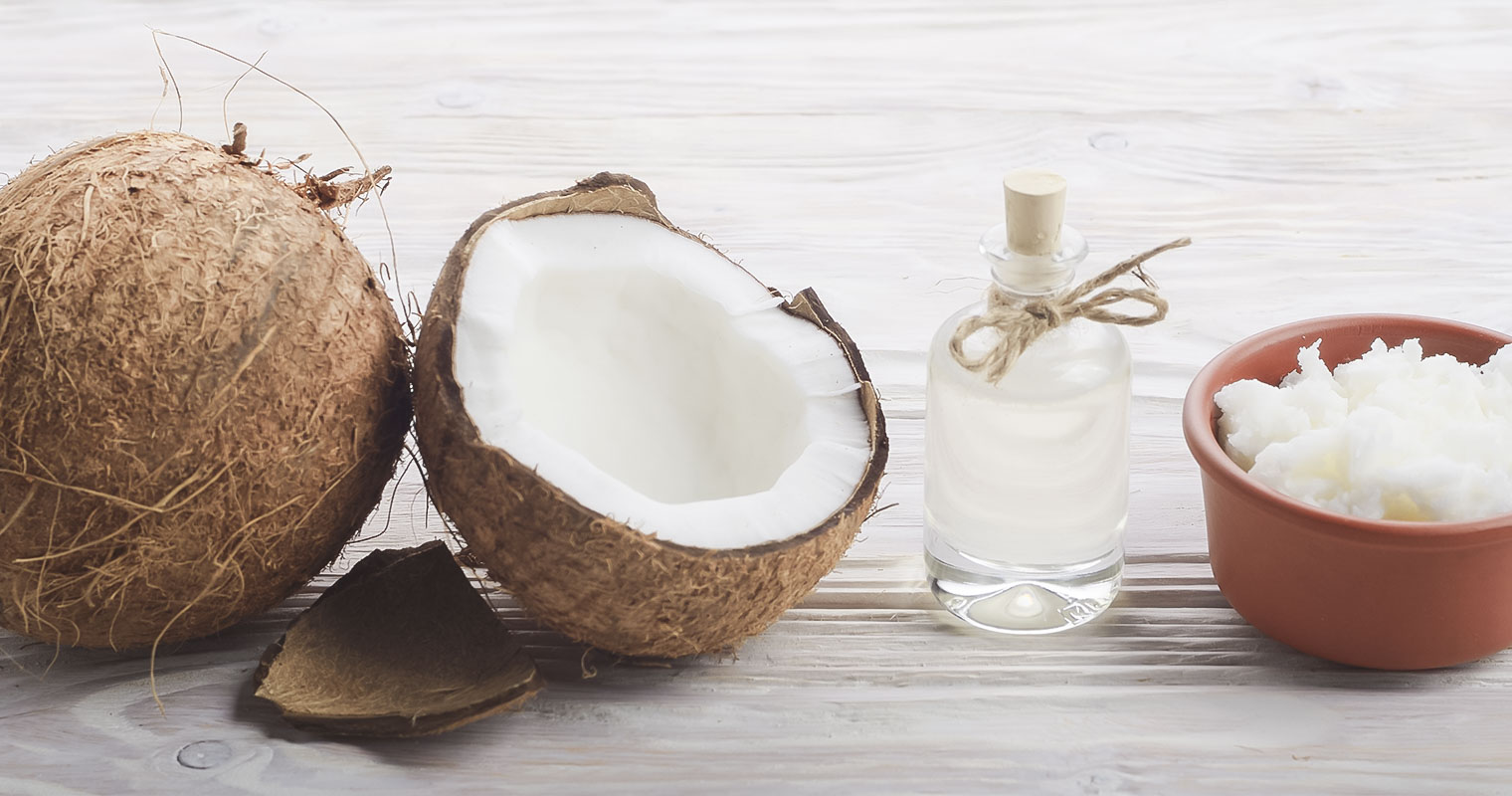
Alternative natural methods to treat rash
Other natural oils you can use to relieve the itchy sensation of your stress rash include jojoba oil, argan oil and even olive oil! Besides having moisturizing properties, these oils also help to reduce inflammation and in repairing the skin barrier, improving skin elasticity as well as in wound healing (respectively)!
Furthermore, these very oils help to promote anti-aging. Natural remedies work better at keeping the signs of aging at bay because they contain nutrients and organic ingredients your skin needs to remain supple and youthful.
Acne breakout & its treatment
If you have ever wondered why you break out more often when under pressure, it is due to stress. A chemical response in your body is triggered when you’re feeling pressed, and this causes an increase in hormones called cortisol. Cortisol is responsible for making your skin produce oil – and the more oil your skin produces, the more prone to acne it becomes.
Breakouts are a cause of clogged oil glands due to increased oil production in the skin. As a result of bacterial infection due to toxic environmental exposure, it can elevate to become acne cysts or nodules. This is a severe form of acne.
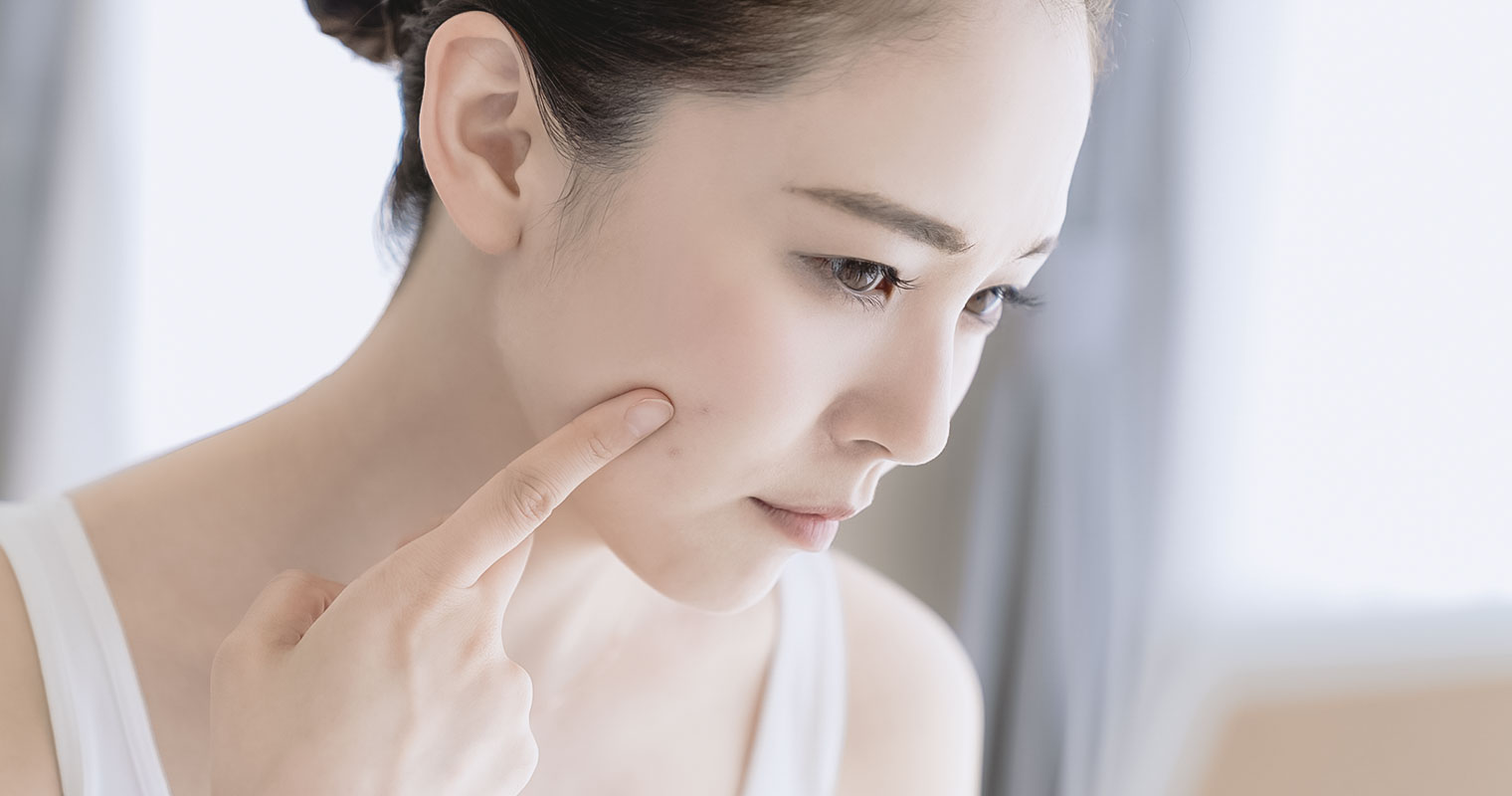
There are many skincare products and treatments in the market that we are familiar with to combat acne. Some of these include benzoyl peroxide, glycolic acid, salicylic acid or sulfur. These acne-treating ingredients can help in reducing most acne symptoms by inhibiting sebum (oil) production. Other than that, they also deter bacterial growth in the skin and help shed dead skin cells that may otherwise contribute to clogging your pores. Look out for these ingredients in your cleansers, toners and facial wash to help in your acne treatment.
Natural/organic ingredients to treat acne
Tea tree oil
Now many of us have heard of this wonder oil that supposedly treats acne – but does it?
Tea tree oil has antiseptic and antimicrobial properties. This means that it helps in disinfecting the skin pores, unclogging your pores and inhibiting bacterial growth while reducing your acne.
Apply a few drops of this oil onto a cotton bud or pad and gently dab it directly to your pimple, spots or blemishes. You should be able to see a significant effect overnight!
Manuka honey
This isn’t your regular “kitchen” honey. Manuka honey is actually indigenous to its home in New Zealand, where they originate from the manuka bush. There have been studies conducted on the effectiveness of manuka honey as a treatment for acne. In one of the studies, researchers have observed that this honey has gained popularity in hospitals and clinics as an ingredient in wound dressing. It supposedly promotes wound healing – but there hasn’t been any definitive studies to prove or disprove this theory.
If you want to give it a try, add a spoonful of manuka honey with several drops of warm water to make a nectar-like mixture. Using clean hands, take this mixture and massage it over the affected area. Rinse it off and pat dry!
Another way to use Manuka honey for acne treatment is to dab a tiny amount onto your pimple and leave it overnight. Manuka honey is said to have antibacterial properties, and it may help to disinfect your skin.
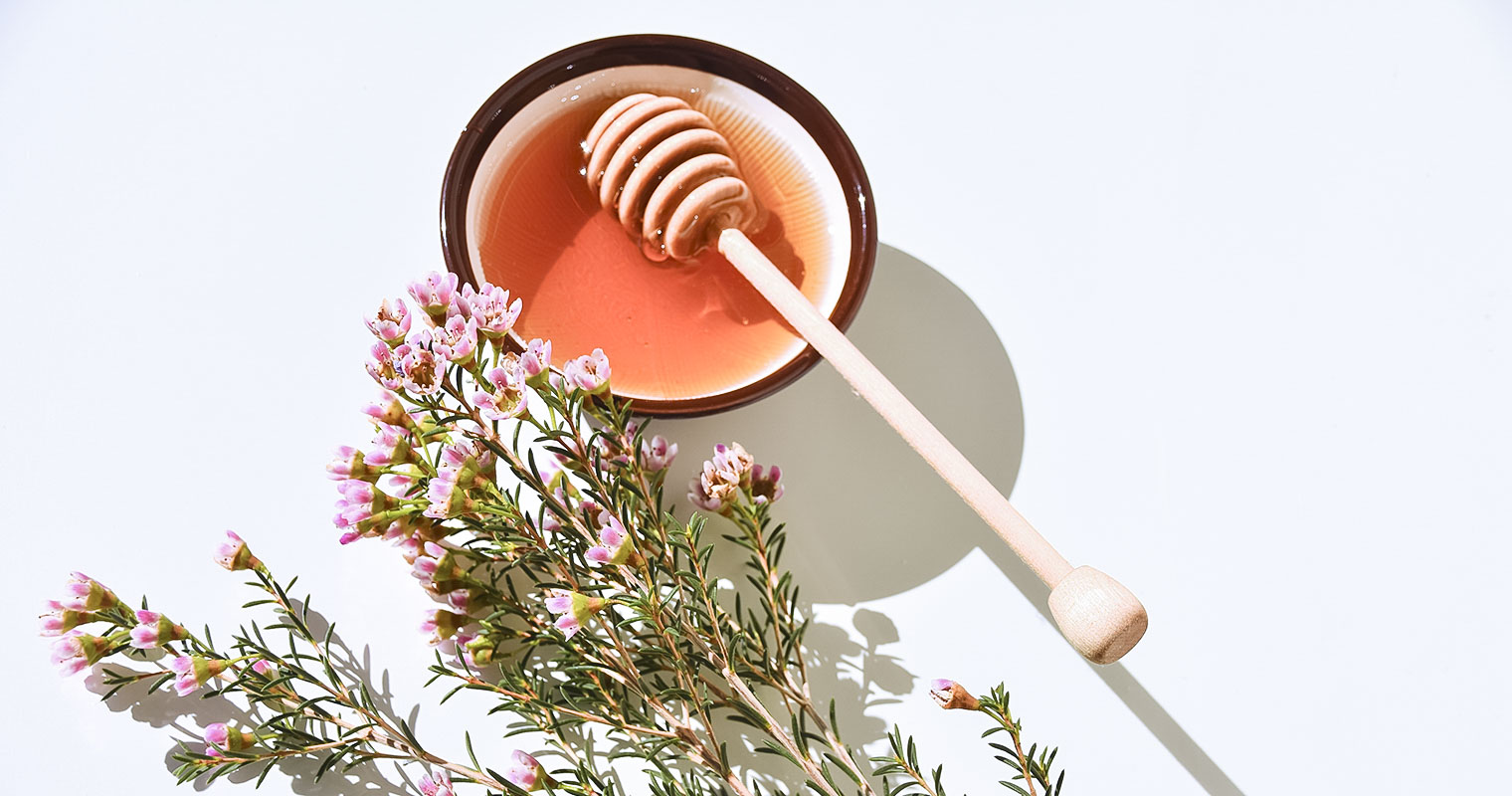
Lifestyle changes to manage your stress
Juggling work life among other things may prove to be difficult. Sometimes it is the pressure from doing numerous things simultaneously, or having several things in mind may prove to do you more harm than good. Your body has a way to reflect how you feel on your outer shell – which is your skin. Having insufficient rest may result in dark circles, whereas stress can result in breakouts and stress rash.
Keep a few tips in mind for when you feel overwhelmed or if you feel that your body is going into overdrive:
- Take a 15-minute breather away from the office. It doesn’t have to be at the restroom or at that cafe you saw around the corner. But as long as you step away from the busy environment, take a few minutes to yourself to clear your mind and breathe.
- Set the scene for a good night’s sleep. You don’t need expensive or fancy bed sheets or duvets to get some beauty sleep. If you find yourself tossing and turning at night, consider having warm milk or chamomile tea before bed. Some people have also said that essential oils play a part in their nightly routine to help them sleep better.
- Get some exercise in. All you need is 30 minutes of stretching your body muscles and some nice, fresh air. Put on your walking (or running) shoes and step outside for 30 minutes a day for a brisk walk. Activate your muscles and clear your mind for a fresher start to the day.
In summary
Aging skin may be of the top concerns when you are in your 40s, and juggling a great skincare routine together with a healthy lifestyle is far from impossible – it is achievable. You can try to incorporate these oils and other natural ingredients into your current skincare routine.
Not only will they help in addressing your skin concerns as a woman in the working world, it will also give your skin the added benefits that it needs to remain glowing and healthy.

References
https://www.webmd.com/beauty/the-effects-of-stress-on-your-skin
https://blackpaint.com.sg/skin-problems-treatments-ages-35-beyond/
https://www.womenshealthmag.com/beauty/a19091327/manuka-honey-acne/
https://www.medicalnewstoday.com/articles/317631.php
https://www.healthline.com/health/home-remedies-for-rashes#plant-oils
https://www.belmarrahealth.com/essential-oils-age-spots-liver-spots-usage-recipes/


